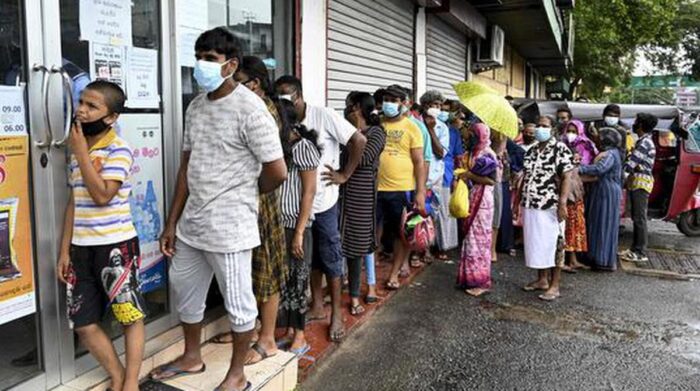The Sri Lankan government has been grappling with the country’s debt crisis since the end of the civil war in 2009. Mahinda Rajapaksa took out massive foreign loans to pay for war expenses and launch flashy infrastructure projects aimed at attracting tourism and rewarding cronies. As a result, Sri Lanka turned to foreign lenders for debt relief as it has very little foreign exchange reserves. Moreover, the government implemented tax cuts to boost political support.
The country’s middle class—which constitutes about 15 percent to 20 percent of the urban population—was enjoying an increasingly comfortable life. The economic boom during this period led to increased incomes and a rising standard of living. It is similar to what happened in Indonesia in the late 1990s. Despite the recent setbacks, this class of Sri Lankans has survived and has flourished.
But by mid-July, the country’s economic crisis had reached an infuriating level. Moreover, a protest movement erupted, torching the prime minister’s house and occupying the president’s palace. Although Gotabaya had promised to step down by July 13, he escaped the country and went to Singapore. But his refusal to step down was met with widespread criticism, and he was forced to resign from his post. Wikremensinghe then stepped into the role of acting president.
Since the onset of the Sri Lankan crisis, the country has faced various difficulties in dealing with the country’s debt problems. Initially, the country’s production of rice had declined by 20 percent, forcing the government to import $450 million worth of rice. Meanwhile, the COVID-19 pandemic has resulted in a significant drop in tourism, which has hurt the country’s foreign exchange reserves. On top of all this, the government has forced civil servants to take Fridays off from work. During these weeks, 70% of households reported cutting back on food consumption. This forced them to turn to donations and government handouts.
The economic conditions for everyday Sri Lankans have deteriorated as fuel prices increased, cooking gas became scarce, and prices for other goods rose. Import bans and state of emergency measures led to a sharp rise in inflation, and new restrictions on the use of social media exacerbated the situation. As a result, people were not used to this kind of scarcity. They became upset when goods disappeared from the shelves. The political situation escalated, with protesters occupying the presidential palace.
While the government has pledged to step down once a new government is in place, there is no end to the problems that have resulted. In addition to a deteriorating health situation, the country’s currency has collapsed by 80 percent, making imports much more expensive and the country’s foreign exchange reserves plummeted. Meanwhile, the country’s foreign currency reserves have plummeted to the point where it cannot even buy basic goods such as toilet paper.
